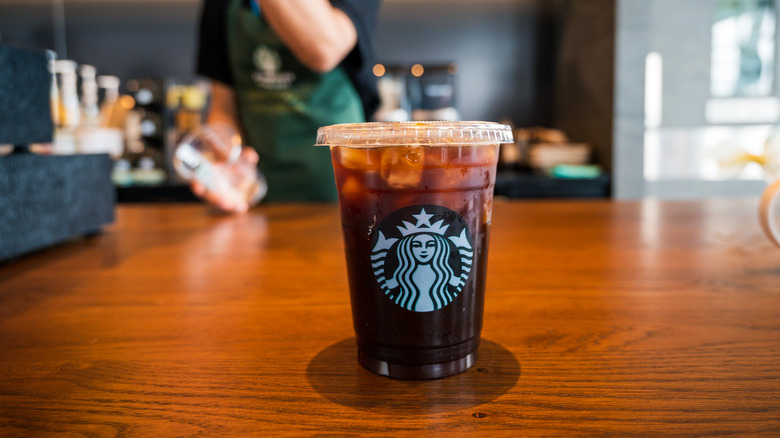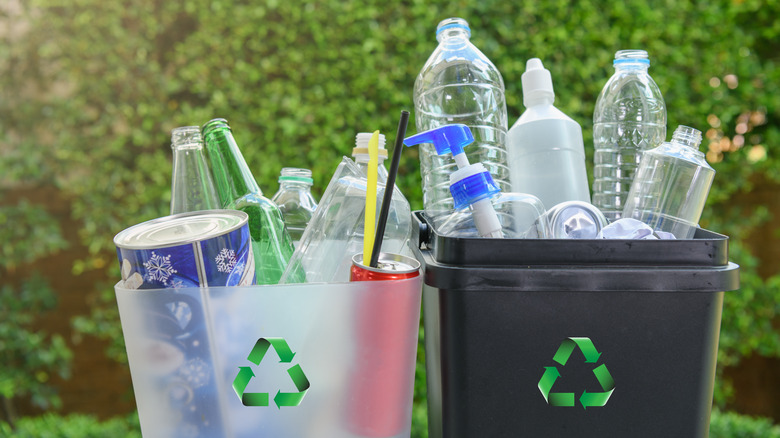TikTok Is Upset With Starbucks After The 'Recycle' Is Revealed To Be A Trash Bin
"The illusion of choice," one commenter wrote on a TikTok video unveiling Starbucks' recycling practices.
The video, which was mistakenly tagged to Subway, shows a person holding a plastic cup from Starbucks. "Cleaning the earth 1 step at a time" hangs over the screen as they approach the bin that's divided between trash and recycling. They drop the cup into the recycling section. Then, they open the door through which the cleaning staff would pull the bags, revealing that both the trash and the recycling openings lead to the same bin.
As of writing, the video has been watched 1.2 million times and liked 141.6K times. "That's sad tbh," one viewer concluded. Some noted that you really couldn't recycle the cup in the video because there was liquid inside. "Guys," @Garayua21, the videographer, wrote back, "I know it's not recyclable. It was just a joke for the video."
Workers from other Starbucks cafes, Panera Bread, and McDonald's all chimed in to say that the same or similar practices occurred at their locations. "My Starbucks is the same way," one said. "There's two separate bags but they both go in the trash." Some brought up how even when a chain makes a push to recycle, customers never followed protocol: "We have bins for compost and recycling at my store but not a single customer uses them right so it just goes in the trash." So, in the end, it all leads to the dump.
The same goes for most recycling
The scene in the video brought out some understandable cynicism in the comments: "It's like this everywhere. You think your recycling but it's just going to the dump. Biggest scam in the world." However, the cynicism is warranted.
While covering the failings of a high-tech recycling startup called Renewlogy, Reuters noted that 90% of all plastics end up either in landfills or in the air after incineration. The issue is that recycling plastic is far more expensive than simply buying more plastic. So there's no market-based impetus to recycle. A secondary incentive against recycling is that it lowers sales. As Larry Thomas, former president of the Society of the Plastics Industry, told NPR, "Nobody that is producing a virgin product wants something to come along that is going to replace it. Produce more virgin material — that's their business." Most shows of recycling are a form of greenwashing.
An example of this greenwashing through ostentatiously pointless recycling was Taco Bell's plan to recycle their sauce packets. In April 2021, they announced that their packets would be made "recyclable, compostable, or reusable" (via CNN). However, Greenpeace noted that the more environmentally friendly option would be not to make the packets in the first place. In a press release, they suggested that Taco Bell could rely solely on in-store sauce dispensers. Similarly, Starbucks could shift from pretending to recycle to phasing out disposable plastic cups, as it announced it will do in South Korea by 2025 (via CNBC).

